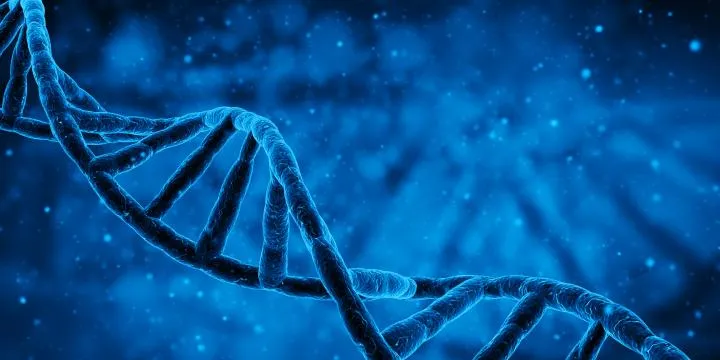Which Parent Carries The Autism Gene?
With the rise in prevalence, many parents are curious about the genetics of autism and whether or not they may pass down the condition to their children.

Does The Mom Or Dad Carry The Autism Gene?
Autism is less common in females, and we have always believed it gets passed down from the mother. However, studies suggest that autism genes are typically inherited from the father, despite what most people think.

Research has shown that there are certain genetic mutations and variations that are associated with an increased risk of developing autism. However, these genetic factors are not always inherited from a parent. In fact, the majority of cases of autism do not have a clear genetic cause.
One study published in the Journal of the American Medical Association found that in cases where there was a clear genetic cause of autism, the mutation was more likely to be inherited from the father.
However, this is not a universal rule and there are many cases where the genetic cause is not inherited from either parent.
Even if one parent does carry a genetic mutation associated with autism, it doesn't necessarily mean that their child will develop the condition. Autism is a complex disorder that involves many different genes and environmental factors.
In addition to genetics, there are a number of other factors that may contribute to the development of autism. For example, prenatal exposure to certain chemicals and medications, as well as complications during pregnancy and birth, have been linked to an increased risk of autism.
How To Avoid Passing Down Autism To Your Children
While there is no guaranteed way to prevent autism from being passed down to your children, there are steps you can take to reduce the risk.
One option is preimplantation genetic diagnosis (PGD), which involves screening embryos for genetic mutations before they are implanted in the womb. This technique can be used alongside in vitro fertilization (IVF) and has been successful in helping some families avoid passing on certain genetic disorders.
Another approach is to consult with a genetic counselor. They can help you understand the potential risks of passing on autism or other genetic conditions and provide guidance on how to manage those risks.
They may also recommend certain tests or screenings during pregnancy to monitor for any potential issues.
It's also important to maintain a healthy lifestyle during pregnancy, as certain environmental factors have been linked to an increased risk of autism. This includes avoiding exposure to harmful chemicals and pollutants, getting regular exercise, and eating a healthy diet by avoiding all processed foods.
It's important to remember that autism is not caused by any one factor and cannot always be prevented.
However, by taking proactive steps and seeking guidance from healthcare professionals, parents can make informed decisions about their family planning and reduce the risk of passing down certain genetic mutations associated with autism.
What Is The Autism Gene?
Autism is a complex disorder that involves many different genes. There is no single "autism gene." Instead, researchers have identified several genetic mutations and variations that are associated with an increased risk of developing autism.
One of the most well-known genetic factors associated with autism is a mutation in a gene called SHANK3. This gene plays a role in the development and function of synapses, which are the connections between neurons in the brain.
Mutations in this gene can disrupt communication between neurons and contribute to the development of autism.
Other genes that have been linked to an increased risk of autism include CHD8, SCN2A, and ADNP. These genes play various roles in brain development and function.
It's important to note that having one or more of these genetic mutations does not necessarily mean that someone will develop autism. Autism is a complex disorder that involves many different genetic and environmental factors, so it's impossible to predict who will develop the condition based on genetics alone.
However, understanding the genetics of autism can help researchers develop better treatments and interventions for individuals with the condition. It can also provide valuable information for parents who are concerned about passing down certain genetic mutations to their children.
Myths About How Autism Gets Passed Down
There are many myths surrounding how autism gets passed down from parent to child. One common myth is that autism only occurs when both parents carry the autism gene.
This is not true. Autism can be caused by a combination of genetic and environmental factors, and it is possible for a child to develop autism even if neither parent has the condition.
Another myth is that vaccines cause autism. This has been thoroughly debunked by numerous studies, yet the myth persists in some circles.
Vaccines do not cause autism, and delaying or withholding vaccines puts children at risk for serious and preventable illnesses.
It's important to understand the true causes of autism and dispel these harmful myths so that parents can make informed decisions about their family planning and healthcare choices.
By seeking accurate information from reliable sources, we can better support individuals with autism and their families.
FAQs
Can both parents pass down the autism gene?
Yes, both parents can pass down genetic mutations that increase the risk of developing autism. However, in most cases, the genes associated with autism are inherited from the father.
If my child has autism, does that mean I have it too?
Not necessarily. While there is a genetic component to autism, having a child with autism does not guarantee that you have the condition as well.
What should I do if I am concerned about passing down autism to my child?
If you are concerned about your risk of passing down genetic mutations associated with autism, speak with a genetic counselor. They can help assess your risk and provide guidance on how to proceed. It's important to remember that even if you do carry a genetic mutation associated with autism, it does not mean that your child will develop the condition.
Can environmental factors play a role in the development of autism?
Yes, environmental factors such as exposure to certain chemicals and medications during pregnancy or complications during birth may increase the risk of developing autism. However, genetics also play a significant role in determining an individual's risk for developing the condition.
Summary
While there are certain genetic mutations and variations that are associated with an increased risk of developing autism, the condition is complex and multifactorial. It is important for parents to be aware of the risk factors for autism and to seek early intervention if they have concerns about their child's development.
Does Your Child Have An Autism Diagnosis?
Learn More About How ABA Therapy Can Help
Find More Articles
Contact us
North Carolina, Nevada, Utah, Virginia
New Hampshire, Maine
Arizona, Colorado, Georgia, New Mexico, Oklahoma, Texas
.avif)




































































































